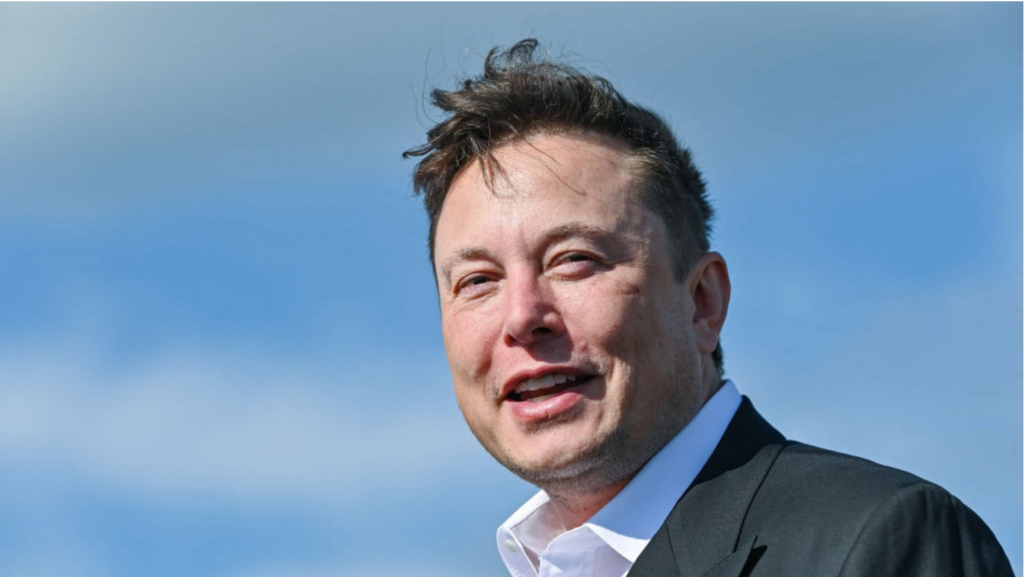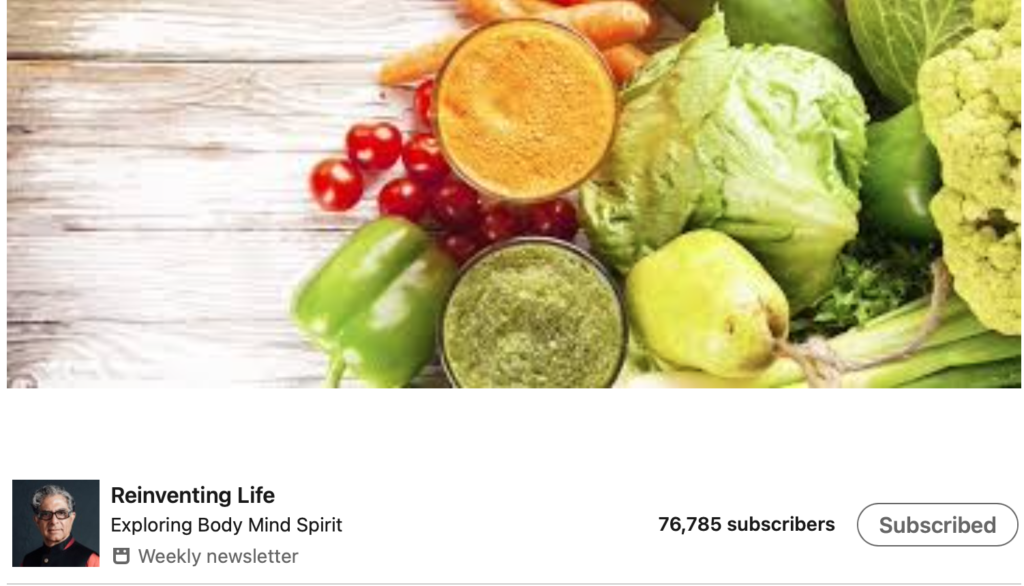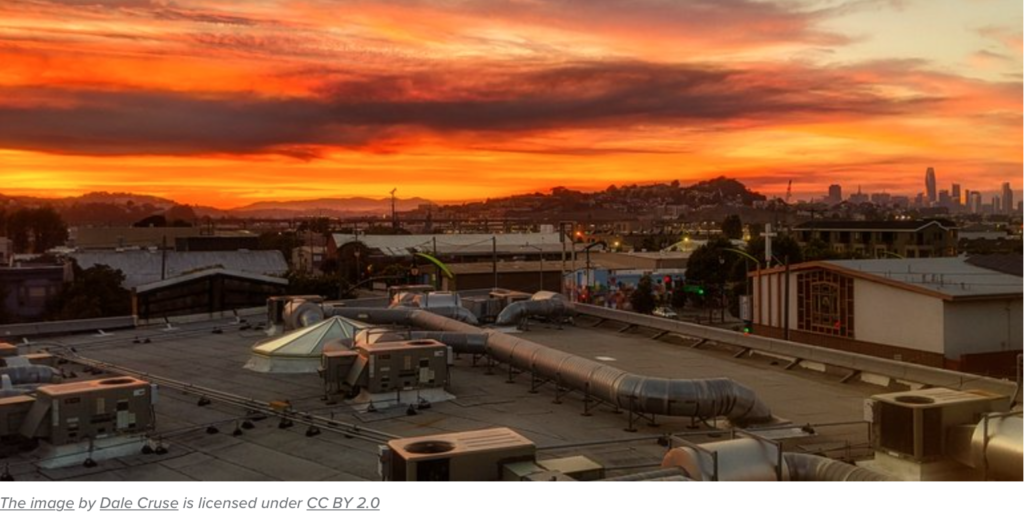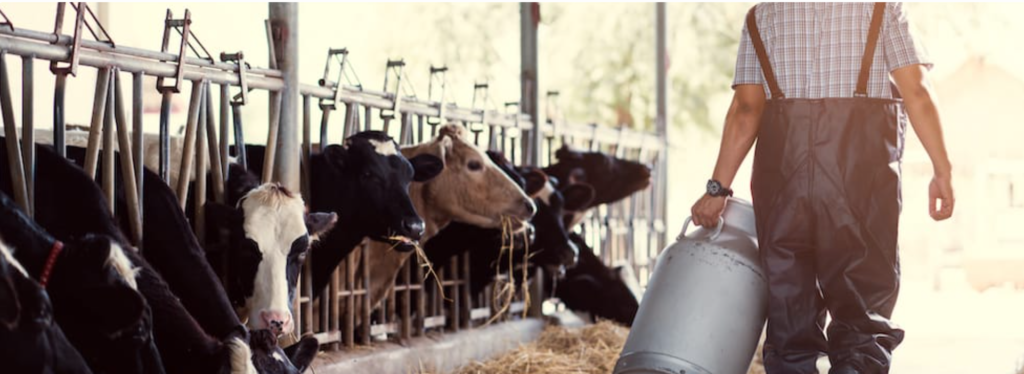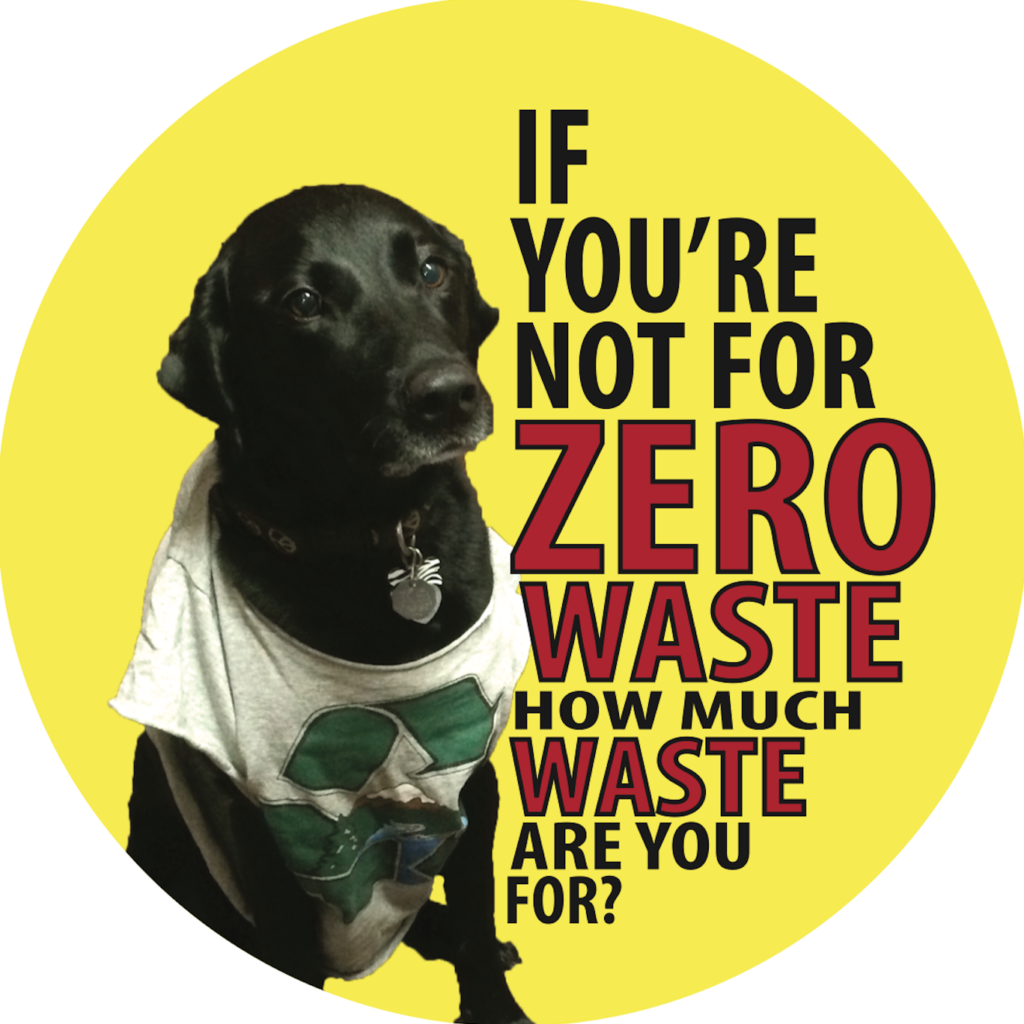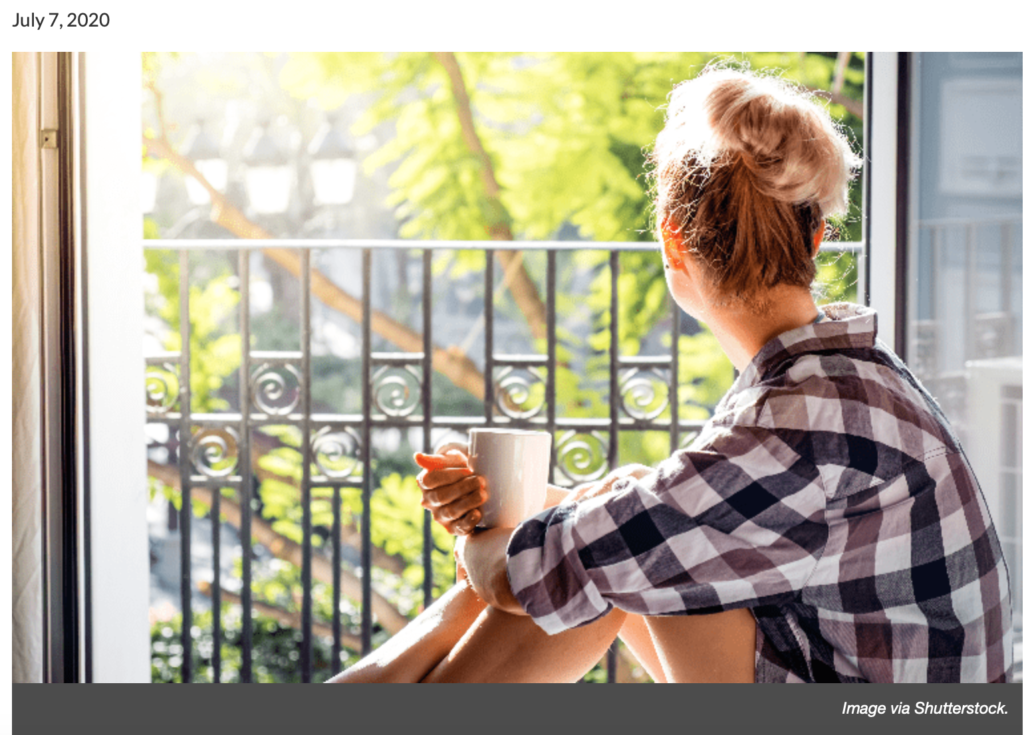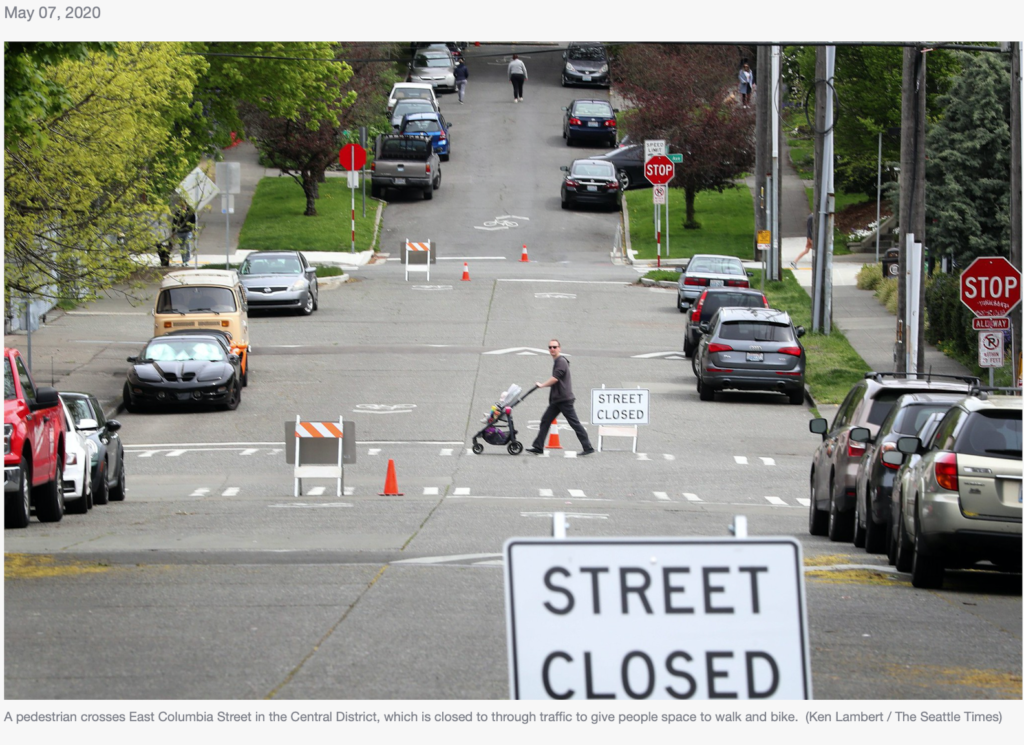I can’t think of a better way to start the day than with this pear porridge. It’s getting a little colder and that might mean getting out of bed is a little harder, but if you’re looking for some motivation to begin your day, a warm bowl of this porridge is the perfect recipe to get your day off to the best start ever.
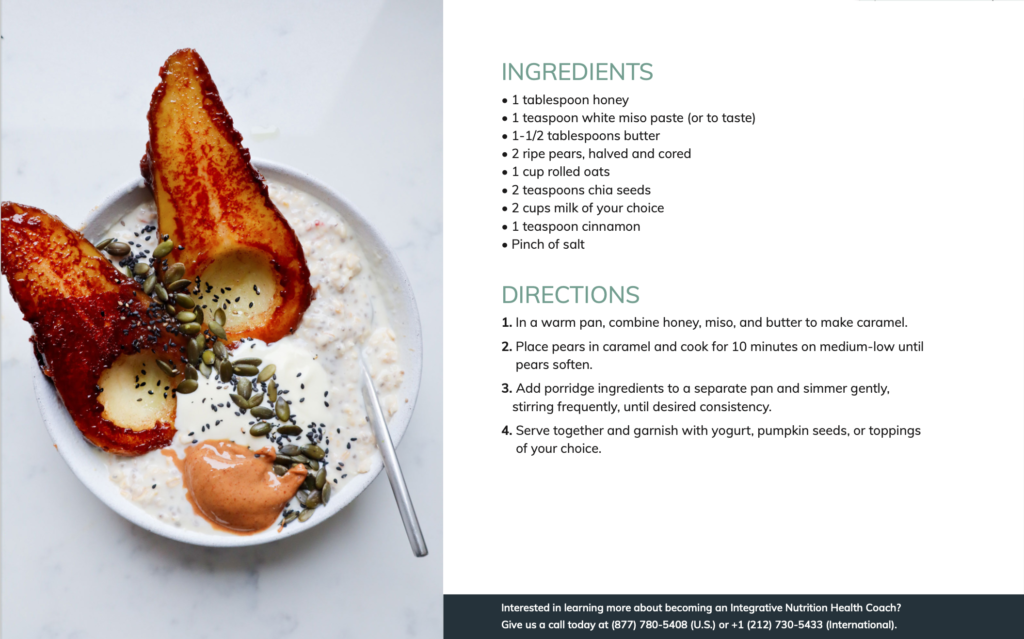
*INGREDIENTS*
• 1 tablespoon honey
• 1 teaspoon white miso paste (or to taste)
• 1-1/2 tablespoons butter
• 2 ripe pears, halved and cored
• 1 cup rolled oats
• 2 teaspoons chia seeds
• 2 cups milk of your choice
• 1 teaspoon cinnamon
• Pinch of salt
*DIRECTIONS*
1 In a warm pan, combine honey, miso, and butter to make caramel. 2 Place pears in caramel and cook for 10 minutes on medium-low until pears soften. 3 Add porridge ingredients to a separate pan and simmer gently, stirring frequently, until desired consistency. 4 Serve together and garnish with yogurt, pumpkin seeds, or toppings of your choice.
Interested in learning more about becoming an Integrative Nutrition Health Coach? Give us a call today at (877) 780-5408 (U.S.) or +1 (212) 730-5433 (International).

